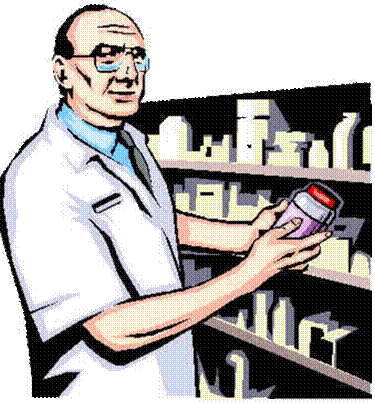
КАТЕГОРИИ:
Архитектура-(3434)Астрономия-(809)Биология-(7483)Биотехнологии-(1457)Военное дело-(14632)Высокие технологии-(1363)География-(913)Геология-(1438)Государство-(451)Демография-(1065)Дом-(47672)Журналистика и СМИ-(912)Изобретательство-(14524)Иностранные языки-(4268)Информатика-(17799)Искусство-(1338)История-(13644)Компьютеры-(11121)Косметика-(55)Кулинария-(373)Культура-(8427)Лингвистика-(374)Литература-(1642)Маркетинг-(23702)Математика-(16968)Машиностроение-(1700)Медицина-(12668)Менеджмент-(24684)Механика-(15423)Науковедение-(506)Образование-(11852)Охрана труда-(3308)Педагогика-(5571)Полиграфия-(1312)Политика-(7869)Право-(5454)Приборостроение-(1369)Программирование-(2801)Производство-(97182)Промышленность-(8706)Психология-(18388)Религия-(3217)Связь-(10668)Сельское хозяйство-(299)Социология-(6455)Спорт-(42831)Строительство-(4793)Торговля-(5050)Транспорт-(2929)Туризм-(1568)Физика-(3942)Философия-(17015)Финансы-(26596)Химия-(22929)Экология-(12095)Экономика-(9961)Электроника-(8441)Электротехника-(4623)Энергетика-(12629)Юриспруденция-(1492)Ядерная техника-(1748)
Clinical pharmacy
|
|
|
|
Exercise 16. Make possessive forms from the items in List 1 to combine with items from List 2. Make fifteen combinations.
Examples:
Your sister’s address my teachers’ clothes
LIST 1
Your sister Jonathan Ann and Pat those women my teacher Katie our dog Simon and Jill most people doctors

LIST 2
Address car/cars ideas health legs father/fathers nose/noses clothes education fear of heights
 TEXTs FOR WRITTEN TRANSLATION
TEXTs FOR WRITTEN TRANSLATION
From the journal “Royal Pharmaceutical Society”
Clinical pharmacy is the branch of Pharmacy where pharmacists and pharmaconomists provide patient care that optimizes the use of medication and promotes health, wellness, and disease prevention. Clinical pharmacists and clinical pharmaconomists care for patients in all health care settings but the clinical pharmacy movement initially began inside hospitals and clinics. Clinical pharmacists / pharmaconomists often collaborate with physicians and other healthcare professionals.
Clinical pharmacists and clinical pharmaconomists have extensive education in the biomedical, pharmaceutical, sociobehavioral and clinical sciences. Most clinical pharmacists have a Doctor of Pharmacy (Pharm.D.) degree and many have completed one or more years of post-graduate training (e.g. a general and/or specialty pharmacy residency). Many clinical pharmacists also choose to become Board Certified through the Board of Pharmaceutical Specialties (BPS) which was organized in 1976 as an independent certification agency of APhA (American Pharmacists Association). A pharmacist may become a Board Certified Pharmacotherapy Specialist (BCPS), a Board Certified Oncology Pharmacist (BCOP), Board Certified Nuclear Pharmacist (BCNP), Board Certified Nutrition Support Pharmacist (BCNSP), or a Board Certified Psychiatric Pharmacist (BCPP) through the Board of Pharmaceutical Specialities (BPS). There are also subspecialties within the Pharmacotherapy specialty: Cardiology and Infectious Disease. An up-to-date explanation of pharmacy education leading to the Doctor of Pharmacy degree and Specialty Board Certification can be viewed at: http://www.youtube.com/watch?v=MvPb5peBnAY.
Within the system of health care, clinical pharmacists are experts in the therapeutic use of medications. They routinely provide medication therapy evaluations and recommendations to patients and other health care professionals. Clinical pharmacists are a primary source of scientifically valid information and advice regarding the safe, appropriate, and cost-effective use of medications. Clinical pharmacists are also making themselves more readily available to the public. In the past, access to a clinical pharmacist was limited to hospitals, clinics, or educational institutions. However, clinical pharmacists are making themselves available through a medication information hotline, and reviewing medication lists, all in an effort to prevent medication errors in the foreseeable future.
Basic components of clinical pharmacy practice: · Prescribing drugs,· Administering drugs,· Documenting professional services, · Reviewing drug use, · Communication, · Counseling, · Consulting, · Preventing Medication Errors. Scope of clinical pharmacy:· Drug Information, · Drug Utilization, · Drug Evaluation and Selection, · Medication Therapy Management, · Formal Education and Training Program, · Disease State Management, · Application of Electronic Data Processing (EDP). A video explaining the scope of health-system pharmacy practice and clinical pharmacy can be viewed at: http://www.youtube.com/watch?v=SANWMoTXY-k&NR=1. International Pharmaceutical FederationFrom Wikipedia, the free encyclopedia
|
|
|
The International Pharmaceutical Federation or Fédération Internationale Pharmaceutique, abbreviated as FIP, is an international federation of national organisations that represent pharmacists and pharmaceutical scientists. It was founded in 1912 and is based in the Hague in the Netherlands. Through its 120 Member Organisations, FIP represents and serves almost two million practitioners and scientists around the world.
Over the years, FIP’s priorities have shifted in both focus and content to meet the needs and expectations of the profession, in expanding healthcare services and harmonising emerging scientific developments. At the time of its inception in 1912, the Federation was primarily focused on the pharmaceutical sciences. FIP executed its Mission through Congresses and events mainly through the gatherings of European participants and leaders.
Through its almost 100 year history, FIP has expanded both literally and figuratively. Changes in pharmacy and the emergence of Pharmacy Practice as a cornerstone of the profession have led FIP to become globally visible for its advocacy on the role of the pharmacist in the provision of healthcare, while still maintaining its grounding in the pharmaceutical sciences. In addition to its Congresses, FIP Membership has evolved to become the most extensive global pharmacy and pharmaceutical sciences network and continues to expand its presence worldwide. The Federation’s growing perspective has led to its expansion and development of influential partnerships with some of the world’s leading healthcare, educational and scientific institutions.
THEME III. PHARMACEUTICAL TRAINING IN THE UNITED KINGDOM
|
|
|
|
|
Дата добавления: 2014-11-18; Просмотров: 621; Нарушение авторских прав?; Мы поможем в написании вашей работы!